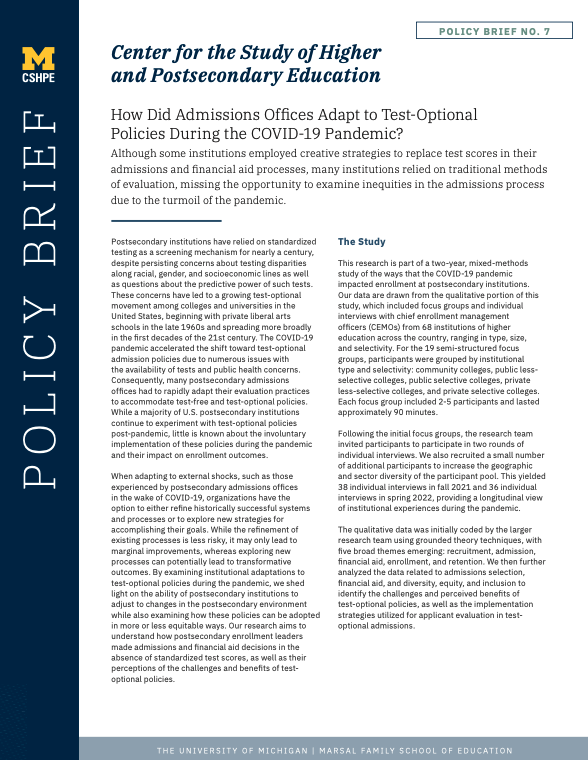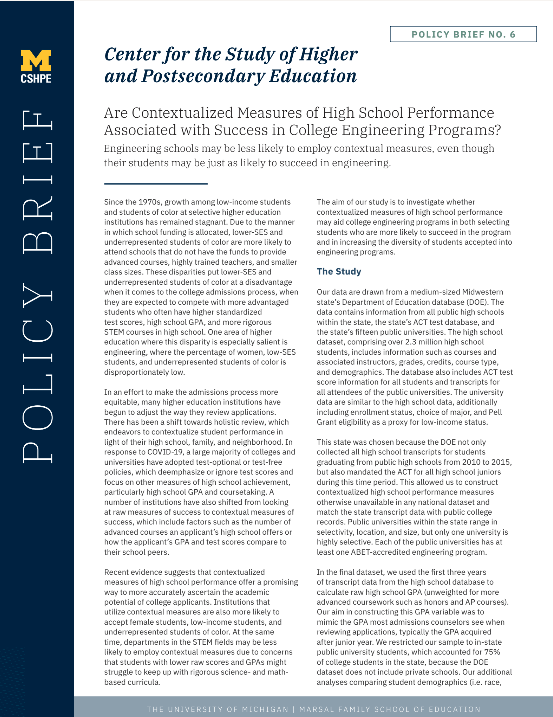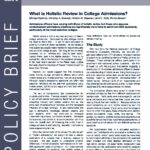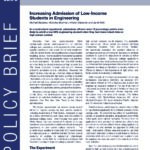Policy Briefs

Bastedo, Michael N., Reuben Kapp, Yiping Bai, Stephanie Carroll, and Gina Meimann. (2024). How Did Admissions Offices Adapt to Test-Optional Policies During the COVID-19 Pandemic?
Although some institutions employed creative strategies to replace test scores in their admissions processes, many institutions relied on traditional methods of evaluation, missing the opportunity to examine inequities in the admissions process.

Bastedo, Michael N., Mark Umbricht, Emma Bausch, Bo-Kyung Byun, Yiping Bai, Joy Richardson, and Abbi Crowder. (2023). Are Contextualized Measures of High School Performance Associated with Success in College Engineering Programs?
Engineering schools may be less likely to employ contextual measures, even though their students may be just as likely to succeed in engineering.

Bastedo, Michael N., Mark Umbricht, Emma Bausch, Bo-Kyung Byun, Yiping Bai, and Joy Richardson. (2023). How Well Do Contextualized Admissions Measures Predict College Success for Underrepresented Groups?
Contextualized measures of high school performance are strongly associated with college success for low-income students, students of color, and women, supporting their use in holistic review for these traditionally underrepresented groups.

Bastedo, Michael N., Mark Umbricht, Emma Bausch, Bo-Kyung Byun, Yiping Bai, and Joy Richardson. (2022). Does Contextualized High School Performance Predict College Success?
Contextualized grades have a stronger, more consistent relationship with college success than contextualized test scores, and may be most helpful at test-optional, test-blind, and broader access colleges that have yet to adopt holistic admissions practices. Our findings also affirm the validity of reading applicants in context in holistic review processes.

Michigan Education, December 2019. Interview and Summary of Landscape Tool for College Admissions

Bastedo, Michael N., Nicholas Bowman, Kirsten M. Glasner, Jandi L. Kelly, and Emma Bausch. November 2017. “What is Holistic Review in College Admissions?”
Admissions officers have varying definitions of holistic review, but those who espouse contextualized admissions practices are significantly more like to admit low-SES applicants, particularly at the most selective colleges. We review three types of holistic review: Whole File, Whole Person, and Whole Context, and recommend that admissions officers adopt a contextualized conception of holistic review.

Bastedo, Michael N., Nicholas Bowman, and K.C. Deane. June 2017. “The Surprising Factors that May Influence Holistic Admissions Decisions at Selective Colleges.”
In a national study of selective colleges and universities, admission officers reveal that many applications do not receive a full holistic read, and admission officers’ backgrounds can influence their likelihood of admitting low-SES applicants. We recommend increasing the quality of high school information, establishing accountability mechanisms, and increasing the diversity of admissions officers.

Bastedo, Michael N., Nicholas Bowman, Kirsten M. Glasener, and Jandi L. Kelly. October 2016. “Increasing Admission of Low-Income Students in Engineering.”
In a randomized experiment, admissions officers were 13 percentage points more likely to admit a low-SES engineering student when they had more robust data on high school context. We recommend raising awareness of cognitive biases and increasing the quality of context data for all students.
